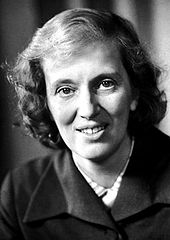
John Dalton was an English chemist, physicist and meteorologist. He introduced the atomic theory into chemistry. He also researched colour blindness, which he had; as a result, colour blindness is known as Daltonism in several languages.

James Prescott Joule was an English physicist, mathematician and brewer, born in Salford, Lancashire. Joule studied the nature of heat, and discovered its relationship to mechanical work. This led to the law of conservation of energy, which in turn led to the development of the first law of thermodynamics. The SI derived unit of energy, the joule, is named after him.

The Dean Cemetery is a historically important Victorian cemetery north of the Dean Village, west of Edinburgh city centre, in Scotland. It lies between Queensferry Road and the Water of Leith, bounded on its east side by Dean Path and on its west by the Dean Gallery. A 20th-century extension lies detached from the main cemetery to the north of Ravelston Terrace. The main cemetery is accessible through the main gate on its east side, through a "grace and favour" access door from the grounds of Dean Gallery and from Ravelston Terrace. The modern extension is only accessible at the junction of Dean Path and Queensferry Road.

William Sturgeon was an English physicist and inventor who made the first electromagnets, and invented the first practical electric motor.
Peter Ewart was a British engineer who was influential in developing the technologies of turbines and theories of thermodynamics.
Edward William Binney FRS, FGS (1812–1882) was an English geologist.

The Grange is an affluent suburb of Edinburgh, just south of the city centre, with Morningside and Greenhill to the west, Newington to the east, The Meadows park and Marchmont to the north, and Blackford Hill to the south. It is a conservation area characterised by large early Victorian stone-built villas and mansions, often with very large gardens. The Grange was built mainly between 1830 and 1890, and the area represented the idealisation of country living within an urban setting.

St. Paul's Church is an evangelical Anglican church in downtown Halifax, Nova Scotia, within the Diocese of Nova Scotia and Prince Edward Island of the Anglican Church of Canada. It is located at the south end of the Grand Parade, an open square in downtown Halifax with Halifax City Hall at the northern end.
Events from the year 1803 in the United Kingdom.

Thomas Percival was an English physician, health reformer, ethicist and author who wrote an early code of medical ethics. He drew up a pamphlet with the code in 1794 and wrote an expanded version in 1803, Medical Ethics; or, a Code of Institutes and Precepts, Adapted to the Professional Conduct of Physicians and Surgeons in which he coined the expression "medical ethics". He was a founding subscriber of the Portico Library in Manchester and a pioneering campaigner for public health measures and factory regulation in the city.
John Davies or Davis was an English scientist in Victorian Manchester. He was a lecturer and private tutor who played an important role in the administration of some of the city's learned societies.
John Gough was a blind English natural and experimental philosopher who is known for his own investigations as well as the influence he had on both John Dalton and William Whewell.
Thomas Barnes (1747–1810) was an English Unitarian minister and educational reformer.

Samuel Laurence was a British portrait painter.
The Salem Philosophical Library (1781–1810) or Philosophical Library Company was a proprietary library in Salem, Massachusetts. Men affiliated with the library included: Tho. Bancroft, Thomas Barnard, William Bentley, Joseph Blaney, Nathaniel Bowditch, Manasseh Cutler, Nathan Dane, Joshua Fisher, Edward Augustus Holyoke, Joseph Mc'keen, B. Lynde Oliver, Joseph Orne, William Prescott, Samuel Page, Joshua Plummer, John Prince, Nathan Read, John D. Treadwell, Ichabod Tucker, and Joseph Willard. "The Library was kept at the house of Rev. Joseph Willard of Beverly, till ... December, 1781. ... His successor was Rev. Dr. Prince, who had the volumes at his mansion" in Salem. "By 1810, many of the members of the [Salem] Social Library also belonged to the Philosophical Library, and the two bodies were merged to create the Salem Athenaeum."
The Lancashire and Cheshire Antiquarian Society is a historical society and registered charity founded, on 21 March 1883, for the study of any aspects of the area covered by the Palatine Counties of Lancashire and Cheshire from antiquity to the twenty-first century.
The Historic Society of Lancashire and Cheshire is a historical society and registered charity founded for the purpose of "collecting, preserving, arranging and publishing such Historical Documents, Antiquities…Specimens of Ancient and Medieval Art, etc. as are connected with the Counties Palatine of Lancaster and Chester…" on 20 June 1848. The society became a registered charity in 1964.

The Department of Chemistry at the University of Manchester is one of the largest Departments of Chemistry in the United Kingdom, with over 600 undergraduate and more than 200 postgraduate research students.
The London Electrical Society was established in 1837 to enable amateur electricians to meet and share their interests in “experimental investigation of Electrical Science in all its various branches”. Although it initially flourished the society soon showed weaknesses in its organisation and ways of working. After a period of considerable financial difficulty it closed in 1845.
John Ashton YatesFRSA was a British Whig politician and railroad investor.










